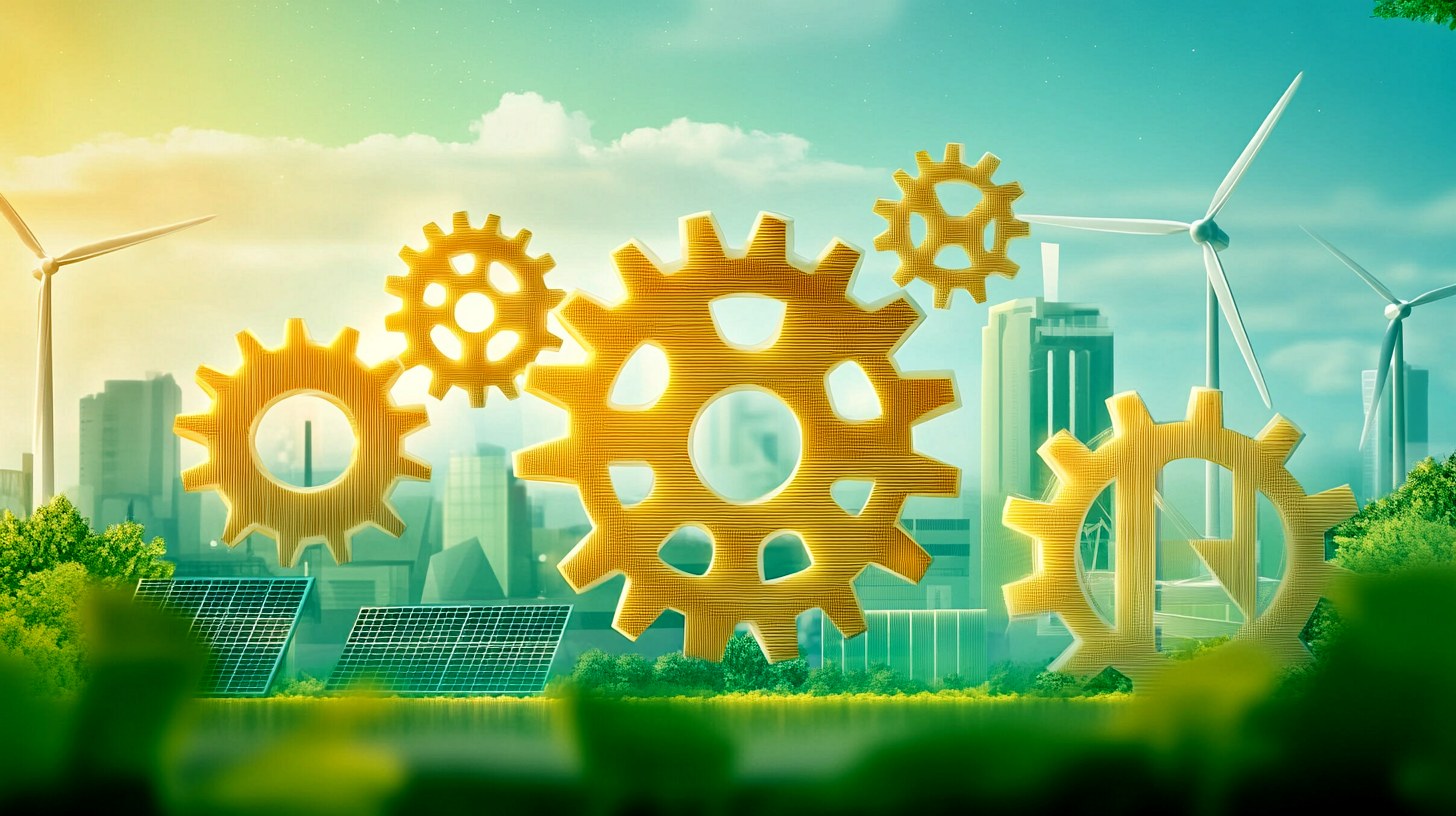
Key aspects of a sustainable market economy: resilience and social responsibility as core values – Image: Xpert.Digital
Resilient market economy: The key to sustainable growth in times of crisis?
Sustainable market economies are gaining increasing importance in an increasingly globalized world. Unforeseen events such as the blockage of the Suez Canal by the container ship Ever Given, the COVID-19 pandemic, and geopolitical conflicts like the war between Russia and Ukraine clearly demonstrate the vulnerabilities of global supply chains and the dependence on international trade relations. These developments underscore the need for a resilient and socially responsible market economy that strengthens regional structures, promotes innovative solutions, and simultaneously ensures long-term sustainability.
Resilience as a key factor in the modern economy
Resilience refers to the ability of a system to remain functional despite external disruptions. In a market economy, this means creating mechanisms that enable companies and economies not only to survive crises but to emerge stronger. The following approaches are central to creating a resilient economy:
1. Buffer stocks and strategic reserves
Stockpiles of raw materials, food, and essential supplies play a crucial role in mitigating disruptions in supply chains. Businesses and governments must build up strategic reserves to avoid shortages and ensure basic supplies.
Suitable for:
2. Energy storage and independence
Given the increasing dependence on fossil fuels and international supply chains, the expansion of renewable energies and the development of high-performance energy storage systems are of central importance. Regional energy autonomy can not only increase security of supply but also reduce environmental impact.
3. Localization of production capacities
A crucial step towards strengthening resilience is relocating production facilities closer to end consumers. This minimizes transport costs, reduces CO2 emissions, and makes economies less vulnerable to international disruptions.
4. Diversification of supply chains
Companies should ensure they diversify their sourcing across multiple suppliers and locations. This reduces the risk of individual suppliers or regions causing critical bottlenecks.
Technological innovations as drivers of resilience
Technology plays a central role in creating a resilient economy. In particular, smart city and smart factory concepts contribute to increasing flexibility and efficiency.
1. Artificial Intelligence (AI) and Automation
AI-based systems enable the optimization of production processes, the prediction of bottlenecks, and the development of adaptive strategies. Automation also reduces dependence on human labor during crises and increases productivity.
2. Internet of Things (IoT)
IoT technologies improve the networking of machines, devices, and systems, thereby providing real-time data. This data can be used to optimize supply chains and identify bottlenecks early on.
3. 3D printing and decentralized production
Additive manufacturing enables the local production of products that would otherwise have to be imported. This reduces delivery times and makes companies less dependent on international suppliers.
4. Blockchain technology
Blockchain offers transparency and security in supply chains because transactions and deliveries are documented in a tamper-proof manner. This increases trust in supply chains and helps minimize fraud or disruptions.
Social responsibility in the market economy
A sustainable and resilient market economy must not only guarantee economic stability but also assume social responsibility. This means that companies and governments must take measures that strengthen society as a whole.
1. Fair working conditions
Resilience is closely linked to the satisfaction and safety of the workforce. Companies should pay fair wages, offer flexible working arrangements, and ensure safe working environments.
Suitable for:
2. Sustainable production methods
Environmentally friendly technologies and waste reduction help to conserve the Earth's resources and minimize the ecological footprint.
Suitable for:
3. Corporate Social Responsibility (CSR)
Companies should support social projects, invest in education, and strengthen local communities. This not only enhances the company's image but also fosters social cohesion.
4. Education and qualifications
In light of rapid technological change, the continuous professional development of the workforce is essential. Retraining and further education programs help to meet the demand for new qualifications and prevent unemployment.
Additional approaches to strengthening the sustainable market economy
In addition to the strategies already mentioned, there are other important approaches to promoting a resilient and socially responsible market economy:
1. Regional networks and cluster formation
Collaboration between companies, research institutions and local governments in regional clusters can promote innovation and strengthen competitiveness.
2. Circular economy
A closed economic cycle in which waste is used as a resource reduces dependence on raw material imports and protects the environment.
Suitable for:
3. Green financing
Investments in sustainable projects and companies can be promoted through green bonds and funds. Financial institutions play an important role in directing capital towards sustainable initiatives.
4. Strengthening the local economy
Consuming local products and services reduces transport distances and promotes regional economic cycles. Campaigns such as “Buy Local” or “Made in your country” can increase demand for domestic products.
5. Global cooperation while simultaneously focusing on regional strengths
While regional strengths are being expanded, international cooperation on issues such as climate protection, trade, and security remains essential. Multilateral agreements and organizations play a key role in this.
The role of regional structures in the sustainable transformation of the market economy
A sustainable and resilient market economy requires a balanced interplay of technological innovation, social responsibility, and strategic planning. Strengthening regional structures, diversifying supply chains, and expanding renewable energies are just as important as promoting fair working conditions and adhering to environmental standards. Only a holistic approach can create an economy that is not only crisis-proof but also guarantees a sustainable future for all.
Suitable for:
